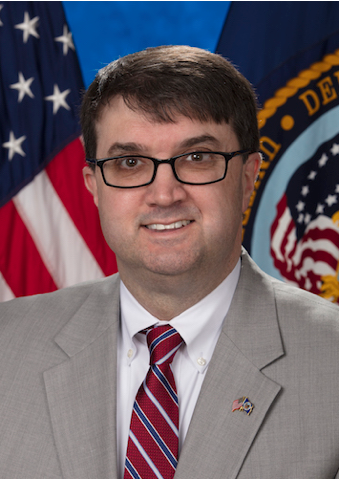Acting No More? Robert Wilkie Is Trump's New Nominee for VA Secretary
The Navy veteran and longtime DoD executive has a history in Washington, though he doesn't appear to have much healthcare experience in his background.

Robert Wilkie, the Acting Secretary of the Department of Veterans’ Affairs (VA), is the President’s new nominee to lead the agency full-time.
That may've come as a surprise to the man himself. While introducing his cabinet members during a meeting today on prison reform, Donald Trump made a key aside:
"Acting Secretary Wilkie—who, by the way, has done an incredible job at the VA, and I'll be informing him in a little while, he doesn't know this yet—that we're going to be putting his name up for nomination to be Secretary of the Veterans Administration. I’m sorry to ruin the surprise.
>>READ: The Chasm Between Public Perception and Clinical Reality at the VA
Wilkie has been serving the VA in a temporary capacity for the past 2 months since Donald Trump fired his first Secretary, David Shulkin, MD, via Twitter. He received the appointment while serving as undersecretary of defense for personnel and readiness at the Department of Defense (DoD).
The new nominee comes primarily from a legal and defense background: He previously served with DoD as an Assistant Secretary of Defense from 2005 to 2009 before leaving the agency to become an executive at international defense and engineering firm CH2M Hill. A former Navy Reserve officer, he rejoined DoD in 2017.
While Wilkie did have to receive Senate confirmation for both of his prior, this nomination round will be the most exhaustive he has faced. The VA is the nation’s largest integrated health system, and it’s currently facing key challenges—a massive electronic health record modernization program, widespread staffing shortages, and debates over privatization.
Following his ouster, Shulkin penned an op-ed expressing fears that politicization and privatization threatened to harm the VA’s care delivery. The White House didn’t officially say why he was fired, though he had been embroiled in a travel scandal where taxpayer money may have been misused.
But both Shulkin and others have suggested that the decision had less to do with that and more to do with a push towards privatization, which he opposes. Doctor and former VA hospital administrator Andrew Cohen, MD, also wrote a recent op-ed where he argued that the administration’s standing support of other agency heads involved in even larger public funds scandals—like Scott Pruitt and Steven Mnuchin—lends credence to the theory that the executive branch is looking to privatize the agency.
While his career (prior to his Acting Secretary stint) doesn’t feature any healthcare administrative experience, Wilkie has years of familiarity with Washington, DC. From 1997 to 2003 he was a defense advisor for the Senate, and from 2003 to 2005 he served as an assistant on the National Security Council. According to his LinkedIn page, he returned to advising Senators in 2015 after leaving his CH2M Hill post.
The President’s previous nominee, White House physician Ronny Jackson, MD, stepped aside following damaging reports about personal conduct.
Related Coverage:
The Chasm Between Public Perception and Clinical Reality at the VA
Shulkin Fears Polarization, Privatization of VA Following Dismissal
Healthy Bottom Line: The Trouble With SDOH Programs and the Secret to Improving Them
September 28th 2021Several problems exist with current programs that address social determinants of health (SDOH); however, a new social model aims to combat these issues and improve the programs’ effectiveness.